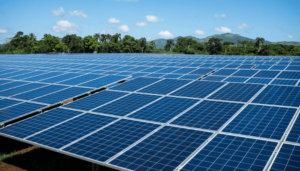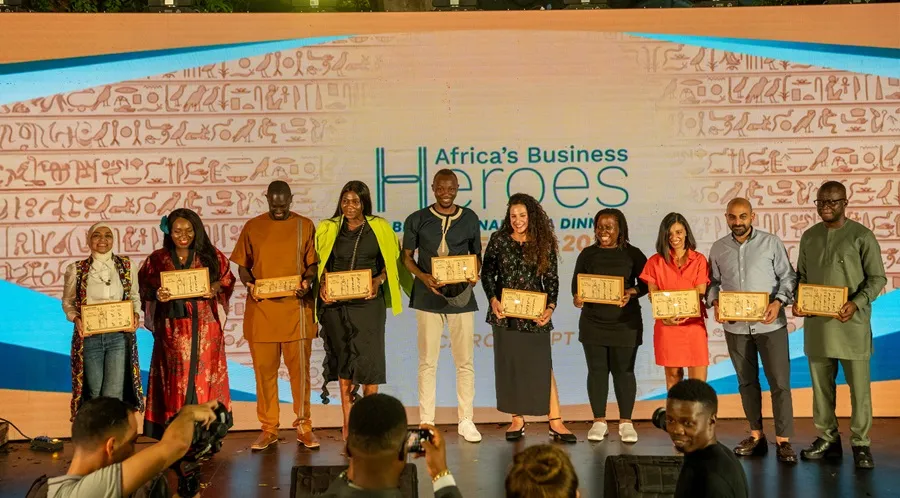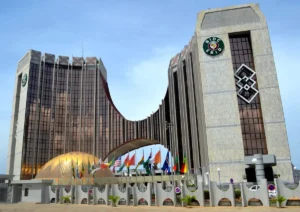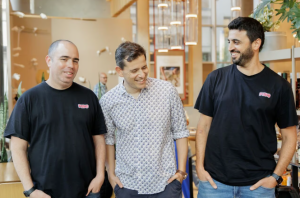
Arnergy Closes $18 Million Series B Round to Scale Solar Access in Nigeria
Nigerian clean energy company Arnergy has secured $15 million in new Series B funding, bringing its total for the round to $18 million following a $3 million raise in 2023.
The Empower Africa Business Platform is Now Live !!!

Africa’s Business Heroes (ABH), the flagship philanthropic enterprise spearheaded by Alibaba Philanthropy and rooted in the Jack Ma Foundation, has unveiled the 20 entrepreneurs selected to advance to the semi-finals of its prestigious 2025 competition.
These finalists will pitch for a coveted spot among the Top 10 and share in a US$1.5 million grant pool.
This milestone marks the culmination of a rigorous selection process that began with an unprecedented 32,000 applications—the most submissions in ABH’s seven-year history—with entries drawn from all 54 African nations.
Earlier in the year, the initiative revealed its Top 50 cohort. These finalists spanned 17 countries and 16 sectors, including fintech, AI, agribusiness, renewable energy, education, and healthcare.
Forty percent were led by women (36%) or hailed from Francophone regions (10%), underscoring ABH’s push for both gender balance and linguistic inclusivity.
To prepare for the next phase, Top 50 entrepreneurs took part in a comprehensive ABH Virtual Bootcamp—featuring workshops with seasoned investors, past winners, and ecosystem leaders.
Topics ranged from AI deployment and digital marketing to team‑building and investment readiness.
Selection then advanced through in-depth interviews and due diligence, conducted in partnership with PlusVC.
The process narrowed the field to the current Top 20, now set to compete in Dakar on 10–11 September 2025, with the finalists pressing on toward the Grand Finale in Kigali in December.
Adriaan Kruger – nuvoteQ (South Africa) – HealthTech / Digital Solutions
Baraka Chijenga – Kilimo Fresh Foods Africa Limited (Tanzania) – AgriTech / Food Security
Blandine Umuziranenge – Kosmotive (Rwanda) – HealthTech / Women Empowerment
Bundi Mbuthia – Uzapoint Technologies Limited (Kenya) – SME Tech / Digital Tools
Diana Gerald – NovFeed (Tanzania) – AgriTech / Biotech
Gohar Said – Suplyd (Egypt) – FoodTech / Supply Chain
Janet Kuteli – Fortune Credit Limited (Kenya) – FinTech / Microfinance
Jean Lobe Lobe – Waspito (Cameroon) – HealthTech / Telemedicine
Jessica Roussos – BluLever Education Pty Ltd (South Africa) – EdTech / Skills Training
Khadija Churchill – Kwanza Tukule Foods Limited (Kenya) – FoodTech / Distribution
Louisa Olafuyi – Kunda Kids Ltd (Uganda) – EdTech / Children’s Media
Mofehintolu Funso – CredPal (Nigeria) – FinTech / Credit Access
Moka Lantum – CheckUps Medical Center (Kenya) – Healthcare / FinTech
Mukashahaha Diane – DIKAM Ltd (Rwanda) – Textiles / Women & Youth Empowerment
Neamat Eltazi – Poultry Sync (Egypt) – AgriTech / Sustainability
Racine Sarr – SAWA by Shop Me Away (Senegal) – Logistics / Digital Platforms
Samwel Ezikiel – Mwamba Mining Limited (Tanzania) – Mining / Sustainability
Siny Samba – Le Lionceau (Senegal) – FoodTech / Infant Nutrition
Thomas Patrick – Franc Group (South Africa) – FinTech / Wealth Management
Wycliffe Onyango – BuuPass (Kenya) – Transport / Digital Ticketing
Zahra Baitie‑Boateng, ABH’s Managing Director for Africa, praised the breadth and quality of the candidates, stating that the 2025 competition showcased “greater depth, diversity, and innovation” from across the continent.
This year also saw ABH leverage technology effectively: ABi, an AI‑powered assistant built on Qwen Turbo, was utilized to streamline applicant support and initial screening—a first in the competition’s history.
Beyond powering facilities, the project delivers tangible environmental benefits: an estimated 545,000 liters of diesel displaced annually and a reduction of about 1,300 metric tons of carbon dioxide emissions each year.
This initiative reflects Libya’s broader ambition to diversify its energy supply, despite being one of Africa’s foremost oil-holders.
As of early 2024, the nation boasted 48 billion barrels of proven reserves—accounting for roughly 41% of the continent’s total.
Nevertheless, the soaring electricity demand—expected to reach 20 GW by the end of 2025—has heightened the urgency for sustainable power alternatives.
In response, Libya’s energy policy charted a path toward 4 GW of renewable capacity by 2035, aiming for renewables to make up approximately 20% of its energy portfolio.
Expanding even further, a newly announced national solar programme envisions a $10 billion investment in solar infrastructure, targeting 4 GW by 2035—enough to fulfill around 40% of the country’s electricity needs.
This mega‑programme includes flagship projects such as the Kufra station, a 500 MW plant in Saddada with TotalEnergies, a Ghadames project financed by AG Energy, rooftop initiatives (500 MW), and a massive 1,500 MW development in the east involving PowerChina and EDF.
Back in Kufra, the facility is fully managed by a team of locally trained Libyan engineers, underscoring the project’s commitment to developing domestic technical capacity and stimulating job growth in the region.
Infinity Libya’s leadership hailed the venture as a turning point: Chairman Mohamed Ismail Mansour described it as a model of sustainable development that exemplifies the power of local collaboration, while Managing Director Fahd Benhalim emphasized that it lays the groundwork for future renewable-energy expansion in sectors such as agriculture, oil and gas, and industry.
Although the Kufra plant is relatively small compared to Libya’s vast oil infrastructure, its successful delivery sets a precedent for swift, locally driven renewable projects.
It underscores an emerging narrative: that the desert sun—once peripheral to Libya’s energy agenda—could become central to its sustainable future.

Nigerian clean energy company Arnergy has secured $15 million in new Series B funding, bringing its total for the round to $18 million following a $3 million raise in 2023.

The ECOWAS Bank for Investment and Development (EBID) has approved new funding worth €230 million and $10 million to support infrastructure projects and private sector development across West Africa.

Ghanaian-Ugandan fintech platform, Fido, has announced a significant boost to its operations with the successful acquisition of $10 million in Series B funding.